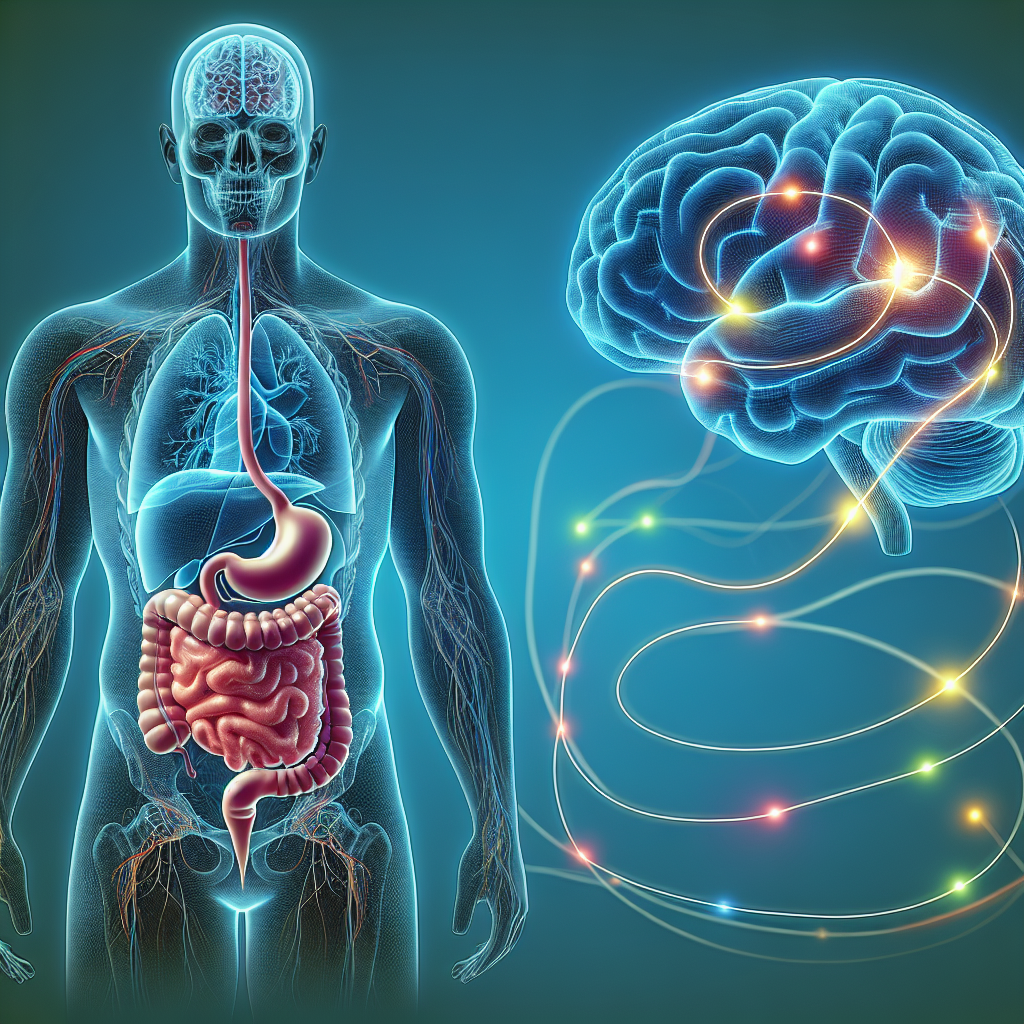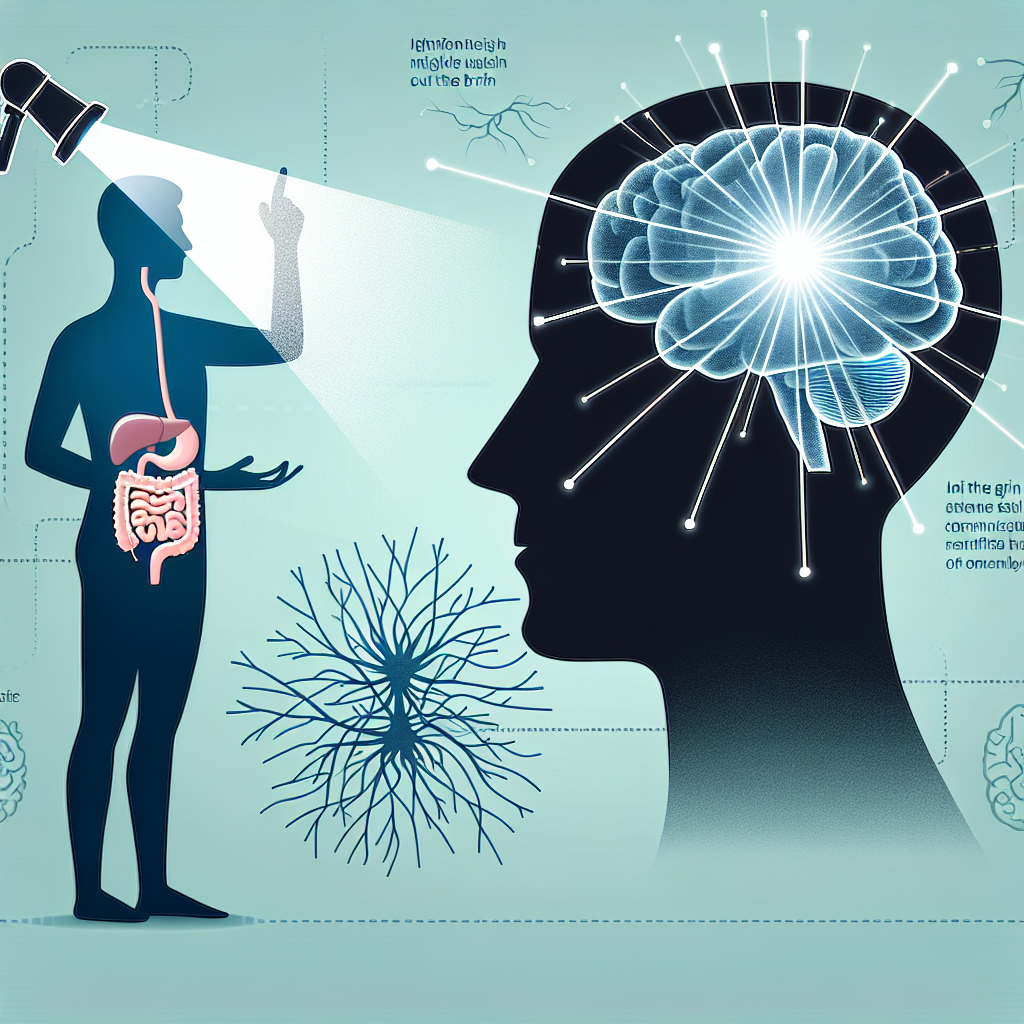The Link Between Your Gut and Brain Health

Discover the fascinating link between your gut and brain health. Learn how your digestive system can impact your mental well-being. Don’t wait, enhance your understanding now and take a step towards a healthier life. Click here to learn more.
Exploring the Connection Between Gut Health and Brain Function
The human body is a complex system of interconnected parts, each playing a crucial role in maintaining overall health and well-being. One such connection that has been gaining significant attention in recent years is the link between gut health and brain function. This relationship, often referred to as the gut-brain axis, is a bidirectional communication system that not only ensures the proper maintenance of gastrointestinal homeostasis but also significantly influences several aspects of brain function, including mood, cognition, and mental health.
The gut-brain axis is a complex network involving the central nervous system, the enteric nervous system, and the millions of microbes residing in the gut, collectively known as the gut microbiota. These microbes, which outnumber our body cells, play a pivotal role in this communication system. They interact with the body by producing various substances, including neurotransmitters and metabolites, which can influence brain function.
One of the primary ways the gut microbiota communicates with the brain is through the production of neurotransmitters, chemical messengers that transmit signals between nerve cells. For instance, about 90% of the body’s serotonin, a neurotransmitter known to regulate mood, sleep, and appetite, is produced in the gut. Imbalances in the gut microbiota, therefore, can lead to altered serotonin production, potentially impacting these vital functions and contributing to conditions such as depression and anxiety.
Moreover, the gut microbiota also produces short-chain fatty acids (SCFAs), metabolites that have been shown to influence brain health. SCFAs can cross the blood-brain barrier, a protective shield that separates the brain from the bloodstream, and influence brain function and behavior. Studies have shown that SCFAs can promote the growth and development of brain cells, reduce inflammation, and protect against neurodegenerative diseases.
In addition to these direct interactions, the gut microbiota can also influence brain health indirectly through its role in the immune system. The gut is a major site of immune activity, and the gut microbiota plays a crucial role in regulating immune responses. Dysbiosis, or imbalance in the gut microbiota, can lead to chronic inflammation, a condition that has been linked to various brain disorders, including Alzheimer’s disease and Parkinson’s disease.
Furthermore, the gut-brain axis also plays a role in stress responses. The gut microbiota can influence the hypothalamic-pituitary-adrenal (HPA) axis, the body’s central stress response system. Changes in the gut microbiota can alter the functioning of the HPA axis, potentially leading to increased susceptibility to stress and anxiety.
In conclusion, the link between gut health and brain function is a complex and multifaceted one, involving direct and indirect interactions between the gut microbiota and the brain. While research in this area is still in its early stages, the evidence so far suggests that maintaining a healthy gut could be key to promoting brain health and preventing neurodegenerative diseases. Therefore, strategies aimed at promoting gut health, such as a balanced diet, regular exercise, and probiotic supplementation, could potentially have far-reaching implications for brain health.
The Role of Gut Microbiome in Mental Health

The human body is a complex system of interconnected parts, each playing a crucial role in maintaining overall health. One such connection, which has been the subject of extensive research in recent years, is the link between the gut and the brain. This connection, often referred to as the gut-brain axis, is a bidirectional communication system that not only ensures the proper functioning of the digestive system but also has significant implications for mental health.
The gut, or more specifically, the gut microbiome, is home to trillions of microorganisms, including bacteria, viruses, and fungi. These microorganisms, collectively known as the gut flora, play a vital role in digestion, nutrient absorption, and immune function. However, emerging research suggests that the gut microbiome’s role extends beyond physical health and has a profound impact on mental health as well.
The gut microbiome communicates with the brain through various pathways, including the nervous system, immune system, and endocrine system. This communication is facilitated by various molecules and chemicals produced by the gut bacteria, such as short-chain fatty acids, neurotransmitters, and cytokines. These molecules can influence brain function and behavior, thereby establishing a direct link between the gut microbiome and mental health.
One of the most compelling pieces of evidence for this link is the role of the gut microbiome in the production of neurotransmitters, which are chemical messengers that transmit signals across the brain. For instance, about 90% of the body’s serotonin, a neurotransmitter associated with mood regulation, is produced in the gut. Imbalances in the gut microbiome can lead to altered serotonin production, which in turn can contribute to mood disorders such as depression and anxiety.
Moreover, the gut microbiome can influence the body’s stress response. The gut bacteria produce molecules that can interact with the hypothalamic-pituitary-adrenal (HPA) axis, the body’s central stress response system. Dysregulation of the HPA axis due to an imbalanced gut microbiome can lead to chronic stress, which is a significant risk factor for various mental health disorders, including depression and post-traumatic stress disorder.
The gut microbiome also plays a role in inflammation, which is increasingly recognized as a key factor in mental health disorders. Certain types of gut bacteria can trigger an inflammatory response, leading to the production of pro-inflammatory cytokines. These cytokines can cross the blood-brain barrier and cause neuroinflammation, which has been linked to the development of mental health disorders such as depression, anxiety, and schizophrenia.
In conclusion, the gut microbiome plays a pivotal role in mental health, influencing everything from mood regulation to stress response and inflammation. This emerging field of research opens up new possibilities for the prevention and treatment of mental health disorders. By understanding and harnessing the power of the gut-brain axis, we may be able to develop novel therapeutic strategies that target the gut microbiome, offering hope for those suffering from mental health disorders. However, more research is needed to fully understand the complex interplay between the gut microbiome and the brain, and to translate these findings into effective treatments.
Understanding the Gut-Brain Axis: Implications for Neurological Disorders
The human body is a complex system of interconnected parts, each playing a crucial role in maintaining overall health and well-being. One such connection, often overlooked, is the intricate relationship between our gut and brain. This connection, known as the gut-brain axis, has been the subject of extensive research in recent years, revealing fascinating insights into how our gut health can influence our brain function and potentially contribute to neurological disorders.
The gut-brain axis is a bidirectional communication system that links the central nervous system, which includes the brain and spinal cord, with the enteric nervous system, the network of nerves controlling the gastrointestinal tract. This connection is not merely physical; it involves various biochemical signaling mechanisms, including the immune system, the autonomic nervous system, and the endocrine system.
Interestingly, the gut is often referred to as the ‘second brain’ due to its vast network of neurons and the production of neurotransmitters, chemicals that transmit signals between nerve cells. For instance, about 90% of the body’s serotonin, a neurotransmitter that contributes to feelings of well-being and happiness, is produced in the gut. This highlights the significant role the gut plays in our emotional and mental health.
Moreover, the gut is home to trillions of microorganisms, collectively known as the gut microbiota. These microorganisms play a crucial role in maintaining gut health and have been found to influence the gut-brain axis. They communicate with the brain through various pathways, including the immune system, the vagus nerve (the longest cranial nerve), and by producing their own neurotransmitters.
Emerging research suggests that alterations in the gut microbiota, often due to factors such as poor diet, stress, and lack of sleep, can disrupt this communication, leading to a range of health issues, including neurological disorders. For instance, studies have found links between gut microbiota imbalances and neurodegenerative diseases like Parkinson’s and Alzheimer’s. Similarly, research has shown a connection between gut health and mental health conditions, including depression and anxiety.
In a study published in the journal ‘Translational Psychiatry’, researchers found that patients with Parkinson’s disease had significantly different gut microbiota compared to healthy individuals. They suggested that these differences could contribute to the development of Parkinson’s by affecting the functioning of nerve cells. In another study, researchers found that certain types of bacteria were less abundant in the guts of individuals with depression, suggesting a potential link between gut health and mental health.
These findings have significant implications for the prevention and treatment of neurological disorders. They suggest that maintaining a healthy gut could potentially help protect against these conditions. This could involve dietary changes, such as consuming a diverse range of plant-based foods and fermented products, which are known to promote a healthy gut microbiota. Additionally, probiotics and prebiotics, which help maintain a healthy balance of gut bacteria, could potentially be used as part of a treatment strategy for neurological disorders.
However, while the link between gut health and brain health is becoming increasingly clear, much is still unknown. More research is needed to fully understand the mechanisms underlying the gut-brain axis and how it can be manipulated to improve health outcomes. Nevertheless, the current evidence underscores the importance of maintaining a healthy gut for overall brain health and well-being.
In conclusion, the gut-brain axis represents a fascinating and complex aspect of human health. Understanding this connection and its implications for neurological disorders could pave the way for innovative prevention and treatment strategies, highlighting the importance of a holistic approach to health that considers the interconnectedness of our body’s systems.